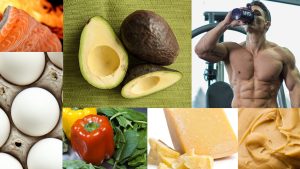
As an athlete, your performance on the field or in the gym depends on several factors, including skill, training, and most importantly, nutrition. Proper nutrition can significantly impact your athletic performance by providing the necessary fuel and nutrients to optimize your energy levels, enhance recovery, and support overall health. This article will guide you through the key aspects of nutrition for athletes and how to fuel your body for peak performance.
Understanding Macronutrients
Macronutrients, namely carbohydrates, proteins, and fats, are the primary sources of energy for athletes. Each macronutrient plays a vital role in athletic performance and should be consumed in appropriate proportions.
Carbohydrates
Carbohydrates are the body’s main source of energy. They are broken down into glucose, which is then used to fuel your muscles during exercise. As an athlete, it is crucial to consume an adequate amount of carbohydrates to sustain energy levels and prevent fatigue.
Complex carbohydrates such as whole grains, fruits, vegetables, and legumes provide a steady release of energy and should form the basis of an athlete’s diet. Avoid refined carbohydrates like sugary snacks and sodas, as they can lead to energy crashes and hinder performance.
Proteins
Proteins are essential for muscle repair and growth. Athletes engage in intense physical activities that break down muscle tissue. Consuming adequate amounts of high-quality protein can facilitate muscle recovery, enhance muscle strength, and improve overall athletic performance.
Good sources of protein include lean meats, poultry, fish, dairy products, eggs, and plant-based options such as legumes, tofu, and quinoa. Aim to include protein in every meal, especially post-workout, to optimize recovery.
Fats
Contrary to popular belief, fats are an important part of an athlete’s diet. They provide a concentrated source of energy and aid in the absorption of fat-soluble vitamins. Healthy fats, such as those found in avocados, nuts, seeds, and olive oil, should be incorporated into your daily meals.
Avoid trans fats and saturated fats found in processed foods and fried items as they can increase inflammation and impair athletic performance. Instead, focus on consuming unsaturated fats, which can promote heart health and provide sustained energy.
Optimal Hydration
Hydration is paramount for athletes as even slight dehydration can lead to a decline in performance. Water constitutes a significant percentage of our bodies and is involved in various physiological processes, including temperature regulation and nutrient transportation.
It is essential to drink water throughout the day and especially before, during, and after exercise. The amount of water needed varies depending on factors such as climate, intensity of exercise, and individual sweat rates. Monitoring your urine color is a good indicator of hydration status – light yellow or clear suggests proper hydration.
In addition to water, electrolytes such as sodium, potassium, and magnesium play a critical role in maintaining fluid balance and muscle function. Consuming electrolyte-rich foods and beverages like sports drinks, coconut water, bananas, and leafy greens can help replenish these vital minerals.
The Importance of Timing
Timing your meals and snacks is crucial for athletes to optimize energy levels and promote recovery. Here’s a breakdown of the ideal meal timing for peak performance:
Pre-Workout
Eating a balanced meal consisting of carbohydrates, proteins, and a small amount of healthy fats around 2-3 hours before exercise is recommended. This allows your body to properly digest the food and provide sustained energy during your workout.
During Workout
For extensive workouts lasting longer than an hour, it’s essential to replenish your energy stores. Consuming easily digestible carbohydrates, such as sports drinks, gels, or energy bars, can provide an immediate boost of energy and delay fatigue.
Post-Workout
After exercise, your body requires nutrients to repair muscles and replenish energy stores. Consuming a combination of carbohydrates and protein within 30-60 minutes post-workout is essential for optimal recovery. This can be achieved through a protein shake, a meal consisting of lean meats with whole grains, or a bowl of Greek yogurt with fruits and nuts.
Individualized Approach
While general guidelines can help athletes understand proper nutrition, it is important to note that individual needs may vary. Factors such as age, gender, body composition, training intensity, and specific goals should be considered when creating a personalized nutrition plan.
Consulting with a registered dietitian or sports nutritionist can provide valuable insights into your unique nutritional requirements. They can help create a tailored meal plan that meets your athletic goals and ensures optimal performance.
Remember, nutrition for athletes is not just about meeting energy needs; it’s about nourishing your body with the right nutrients to elevate your performance and overall well-being.
Conclusion
Nutrition is a crucial component of an athlete’s success. By understanding the role of macronutrients, maintaining proper hydration, timing your meals, and personalizing your approach, you can fuel your body for peak performance. Remember to prioritize whole, unprocessed foods and consult a professional for personalized guidance. With optimal nutrition, you can unlock your athletic potential and achieve your goals on and off the field.

